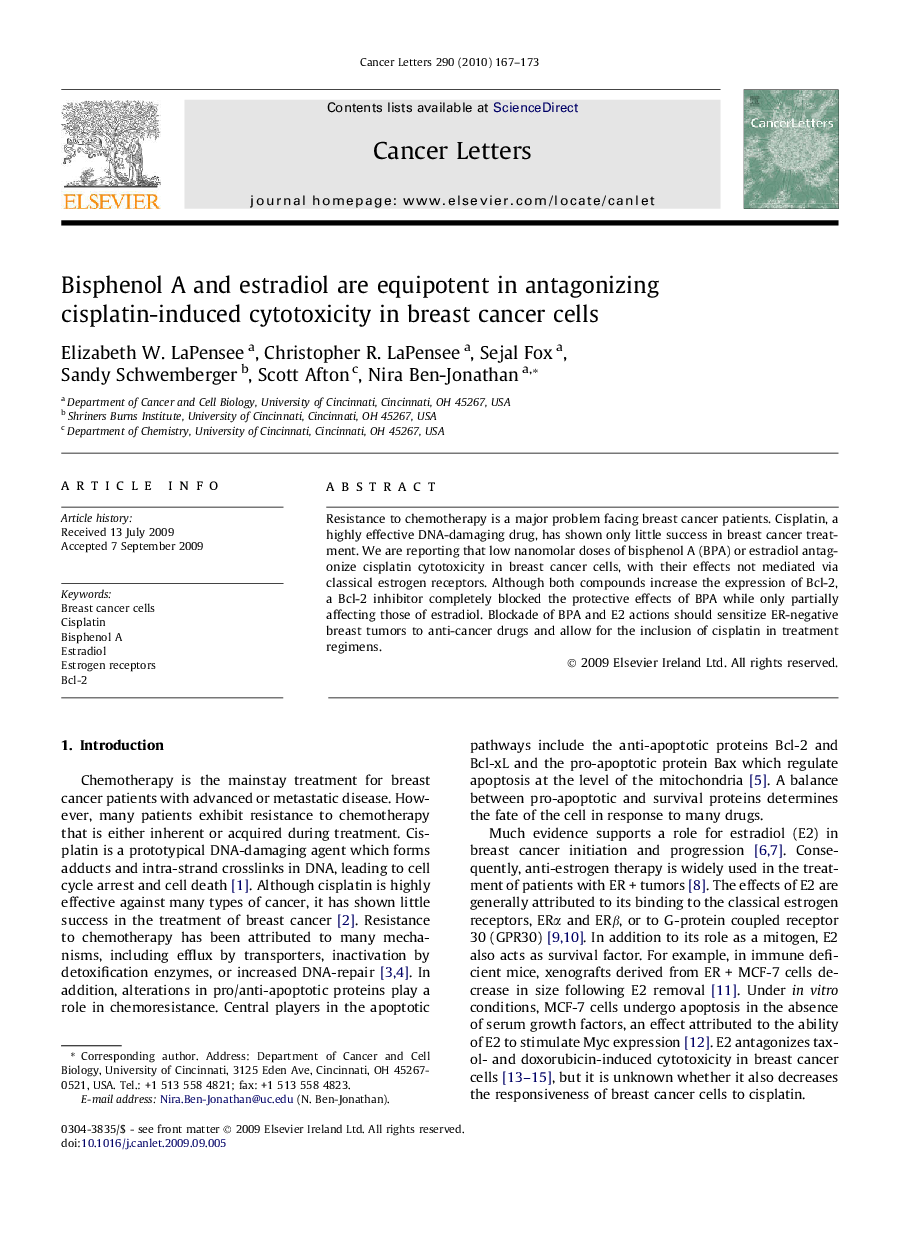| Article ID | Journal | Published Year | Pages | File Type |
|---|---|---|---|---|
| 2114184 | Cancer Letters | 2010 | 7 Pages |
Abstract
Resistance to chemotherapy is a major problem facing breast cancer patients. Cisplatin, a highly effective DNA-damaging drug, has shown only little success in breast cancer treatment. We are reporting that low nanomolar doses of bisphenol A (BPA) or estradiol antagonize cisplatin cytotoxicity in breast cancer cells, with their effects not mediated via classical estrogen receptors. Although both compounds increase the expression of Bcl-2, a Bcl-2 inhibitor completely blocked the protective effects of BPA while only partially affecting those of estradiol. Blockade of BPA and E2 actions should sensitize ER-negative breast tumors to anti-cancer drugs and allow for the inclusion of cisplatin in treatment regimens.
Related Topics
Life Sciences
Biochemistry, Genetics and Molecular Biology
Cancer Research
Authors
Elizabeth W. LaPensee, Christopher R. LaPensee, Sejal Fox, Sandy Schwemberger, Scott Afton, Nira Ben-Jonathan,
